We hear a lot of questions from homeowners who are hesitant about starting their accessory dwelling unit project because they don’t know what to expect working with a contractor. Or worse, they had a negative experience in the past and are now worried about finding themselves in another bad situation. Or perhaps they just want to know if it’s really necessary to hire a general contractor vs. hire a handyman vs. do it themselves.
Maybe you’ve had these questions pop up about building your ADU:
- How do I find a good ADU contractor?
- How do I make sure I have a good experience building an ADU?
- What are my options on who to work with to build a granny flat? What does it cost?
What should I look for in an ADU contractor?
Finding a good contractor is half the battle when beginning your ADU project, as it seems there are endless options to choose from. When you decide to begin your search, be sure to keep these ten things in mind:
1. Does the contractor specialize in meeting your specific needs?
The world of contracting is diverse, from large-scale builders to small remodeling services. Adding to this variety, ADUs come in different flavors: new builds, conversions, and additions. It’s important to find a contractor that’s just the right fit for your project, both in expertise and scale.
Constructing an ADU involves various intricate regulations & processes. So it can be extremely helpful to engage a contractor who has extensive knowledge in this specific field. Their familiarity with potential challenges that may arise during the ADU process can contribute to efficient time management and cost savings.
Similarly, they should have the right resources to handle a project of your size. Too small a contractor might struggle with larger projects, affecting timelines and costs. An ideal contractor will strategically plan your project from obtaining permits to actual construction, minimizing downtime and ensuring your ADU build stays on schedule.
2. Are they proud to showcase their portfolio and track record?
Your potential contractor’s portfolio is a gold mine of information. This gallery of past ADU projects will provide insights into the aesthetics and quality of the company’s work, demonstrating their execution competence from concept to build-out. Given the privacy and liability concerns tied to ADUs (since they are situated on occupied properties), a majority of reputable builders might not offer onsite visits. In such cases, they make up for it with detailed portfolios and virtual tours. Look for a contractor who is proud to showcase their accomplishments, as this is indicative of their confidence in their work and their commitment to transparency.
3. Does the contractor operate extensively in your jurisdiction?
Every city has unique regulations that will affect your build, and your contractor should be able to provide insight as to what those are. Many companies will have informational resources available on the internet to help homeowners gain a better understanding of what a build might look like. However, when it comes to beginning a project, your contractor should be highly familiar with the intricacies of your jurisdiction’s ADU regulations.
4. Is the pricing straightforward with no hidden fees?
Hidden costs can take the joy out of your ADU project. Avoid contractors who don’t provide clear pricing during the initial consultation or on their website, as this could hint at an unexpected change in costs. This can be a sales tactic to keep prices lower. Or this could be a genuine oversight because they simply don’t know the full scope of what will be required to permit and build the ADU. Consider a builder that is honest with you about the full pricing up front. Additional sitework costs will eventually come up whether or not your contractor anticipates them. Find a contractor who informs you of the true project cost upfront so you can plan accordingly.
5. Do they provide a comprehensive and understandable timeline?
A good contractor will know what to expect for the timeline to build an ADU of the size you want, in your jurisdiction, and on your particular property. An ADU will take at least 10 months to design, permit, and build, and often much longer. A good builder won’t lure you with unrealistic estimates, but instead, will keep you informed about the project’s phases and their respective durations.
6. Is communication with them a breeze?
A responsive contractor is a gem. If you find communication challenging even before signing a contract, consider this a red flag. Communication rarely gets better after the sales process, the time when a company puts their best foot forward. Also ask how the company handles their project management throughout the build, as well as their communications with you. If you can track your $12 Domino’s pizza in real time, you should be able to track your $400K ADU project live, too.
7. Do they have a reasonable payment schedule and policy?
A reputable contractor will have a clear and reasonable payment schedule that aligns with project milestones. It’s generally unusual and could potentially raise concerns if a contractor asks for a large payment upfront. While a modest deposit may sometimes be necessary for the procurement of materials, typically you should not be asked to provide more than 15% upfront before the work commences. It’s crucial to establish these payment milestones upfront, so both parties understand the phases at which payments will be made. This ensures the financial aspect of the project runs as smoothly as the construction itself.
8. Do they offer a solid warranty policy?
You want your ADU completed on time and on budget, but you also want to know the contractor will stand behind their work even after they’re finished. Sometimes issues can pop up after the job’s done, so how your contractor handles those can really matter. For instance, a reputable contractor typically provides a 2-year warranty covering any cosmetic defects that aren’t a result of standard wear and tear or the homeowner’s neglect. Additionally, they may offer a 10-year warranty against any structural flaws resulting from failure to comply with approved plans and specifications. This kind of policy safeguards your investment and peace of mind.
9. Do they carry the necessary licenses & insurance?
This is a given. In cases where thousands of dollars are going to be spent on a new guest house, your builder must have the correct certifications and training to carry out your job safely. Many companies will display their general contracting license number on their website or business profile, where they can be checked to ensure validity. They should also carry general liability insurance and workers compensation, as well as provide lien waivers.
10. Are they respected by local entities and individuals?
Good reviews can speak volumes about a contractor. Contractors endorsed by locals and organizations alike show that they are recognized experts, which can give you peace of mind about your investment in your new ADU. Also consider the quality and color of the reviews. How the contractor overcomes difficulties is extremely important, as construction is often dealing with the unexpected.
How can I find a good ADU contractor in San Diego?
Work with a builder that has a good reputation or find someone through referral. If you don’t have a connection, consider working with someone that has significant experience building ADUs in your area and ask to see examples of their past projects. Be sure to ask about payment schedules and find out how much – if any – money will be required upfront (you should be paying for work as it is completed).
You’ve likely heard it’s wise to secure 2-3 bids on a project. If one bid is much lower than the rest, double check that there are no key components missing from the bid (plan submission & permit processing? sitework and utilities? any required solar?). A good contractor should want to minimize surprises so that clients are happy with the experience and want to refer others. Home Builder Digest has put together a list of The 11 Best Accessory Dwelling Unit Builders in San Diego, California.
How do I make sure I have a good experience building a granny flat?
Brush up on what to expect for your ADU costs so you know what to look for in bids and can hold your providers accountable. Also work with a contractor that provides transparency with good project management. Be aware of all the major requirements from the city and/or hire a company that will be accounting for these factors (e.g. will you need to upsize water meter, will you need a building location survey, has the ADU been designed to swiftly pass permitting etc).
Also know of any significant break points in square footage where different fees would apply. In San Diego, if your ADU is under 500 sqft, it will not require civil engineering review (stormwater, catch basins etc). If your ADU is under 750 sqft, there will be no impact fees (except for school fees)…. you can fit 2BR/2BA in a 750sqft space, so many homeowners pick that size to maximize the bang for their buck. The bigger the ADU, the cheaper the cost per square foot will be (since costs like plans, permits, kitchen and baths will be spread across a larger footprint).
Factor in important design decisions early to minimize (expensive) changes later. The overall size and shape of the ADU, as well as the placement on the property, will have ramifications on the living experience in the main house. During the design phase, consider different ADU floor plans and site plan configurations to help flush out any concerns well before construction is underway.
Can I build my own ADU in California?
With the right expertise, you can build your own ADU. Should you choose to build your ADU on your own, you have the option of working completely alone, or purchasing from a company that offers DIY ADU packages for those especially construction-savvy homeowners. However, opting to build your own unit will require incredible organization as you juggle various subcontractors and vendors that will provide you with the necessary materials to complete the job.
It is worth noting that building an ADU on your own can be challenging, as there is a greater risk of making a costly mistake. Many general contractors have processes in place that have been refined and perfected over various projects throughout the years. Without this insider knowledge, you may hit more roadblocks than if you opted for an alternative build process, which has the potential to cost you more money and to prolong your project’s timeline.
What are my options on who to work with to build the ADU? Could I hire a handyman? Could I build it myself?
You will need to decide what experience you want and will need to weigh the overall value in terms of time, ease, and predictability. In the small residential construction world of ADUs, there are essentially three options for how to build your accessory dwelling unit:
Hire a large construction “firm” to build your ADU
Often called design/build firms with a team of people and a back office, design build firms package everything for you – plans, engineering, permitting, construction, and in-person finish material selections. They likely handle new home builds and additions, as well as kitchen and bath remodels. You’ll pay, for example, $400/sqft for vertical build cost for a 750 sqft ADU.
SnapADU is a smaller & fully specialized ADU general contractor. So our costs are typically a bit lower even though we offer industry-leading visibility & service to our clients and handle the whole process. We are focused 100% on ADUs in San Diego County, meaning our expertise can end up saving time & money since we know what pitfalls to avoid (build location & size, inspection watch-outs, project management etc).
Hire “a guy” to build your ADU
Typically a “mom & pop” general contractor or handyman, this kind of an operation may have a few employees who work in the field, while family members do the office work. This person likely hooks you up with a designer, an architect, an engineer, and will self-perform some of the build, maybe hiring some subcontractors. Projects are generally not expertly managed and hiccups are to be expected, meaning timelines are longer and more of the work may be on your shoulders. But, you’ll perhaps pay $325/sqft vertical build cost for a 750 sqft ADU. You may also lack visibility on the fully-loaded cost of the project, as budgets may not contemplate all of the requirements specifically for new ADUs, such as solar, soils reports, fire rated construction & upgraded utilities in some cases.
Do It Yourself – DIY ADU
This scenario would be you acting as project manager, finding your own service providers all the way through, hiring your own subs and perhaps self-performing some of the build. You can pay closer to $250/sqft for vertical construction if you go DIY. Be sure to consider the opportunity cost of your time…especially if you will be renting out the unit, also factor in the time cost of not having the unit rented for months longer if it’s DIY.
You’ll of course have to weigh the pros and cons for your unique situation. We’re happy to chat about what your project budget & timeline would look like working with SnapADU. Contractors that specialize in ADUs will be very knowledgeable about how to efficiently design, permit & build your custom ADU so you get the most bang for your buck. If you pick a designer or architect for your job first, be sure to get a contractor involved during the design to ensure that your actual build cost will be on-budget.
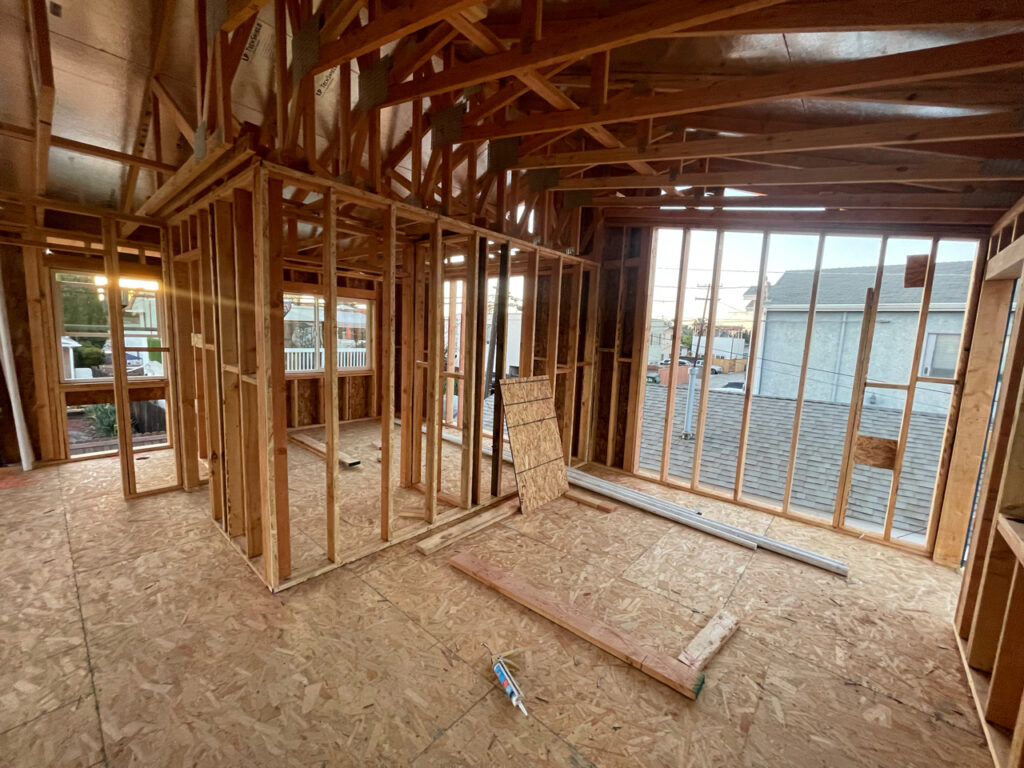
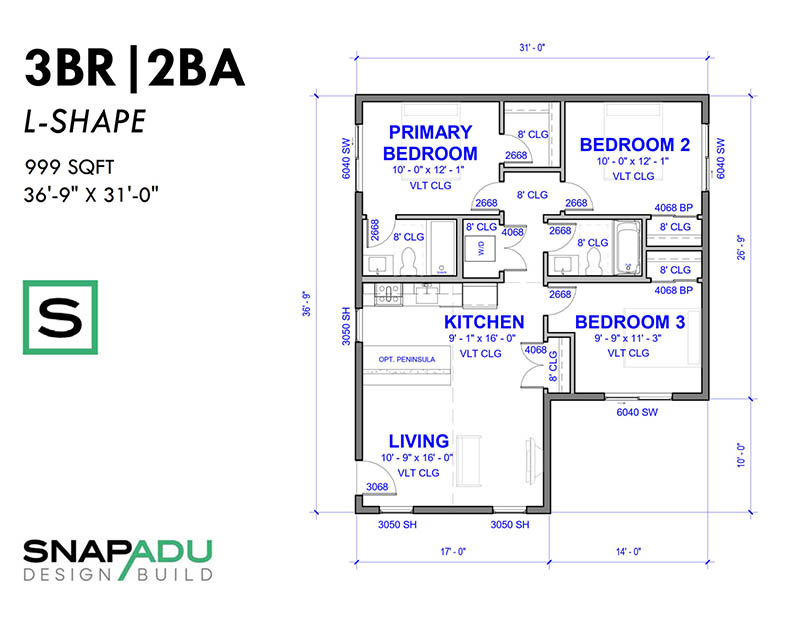
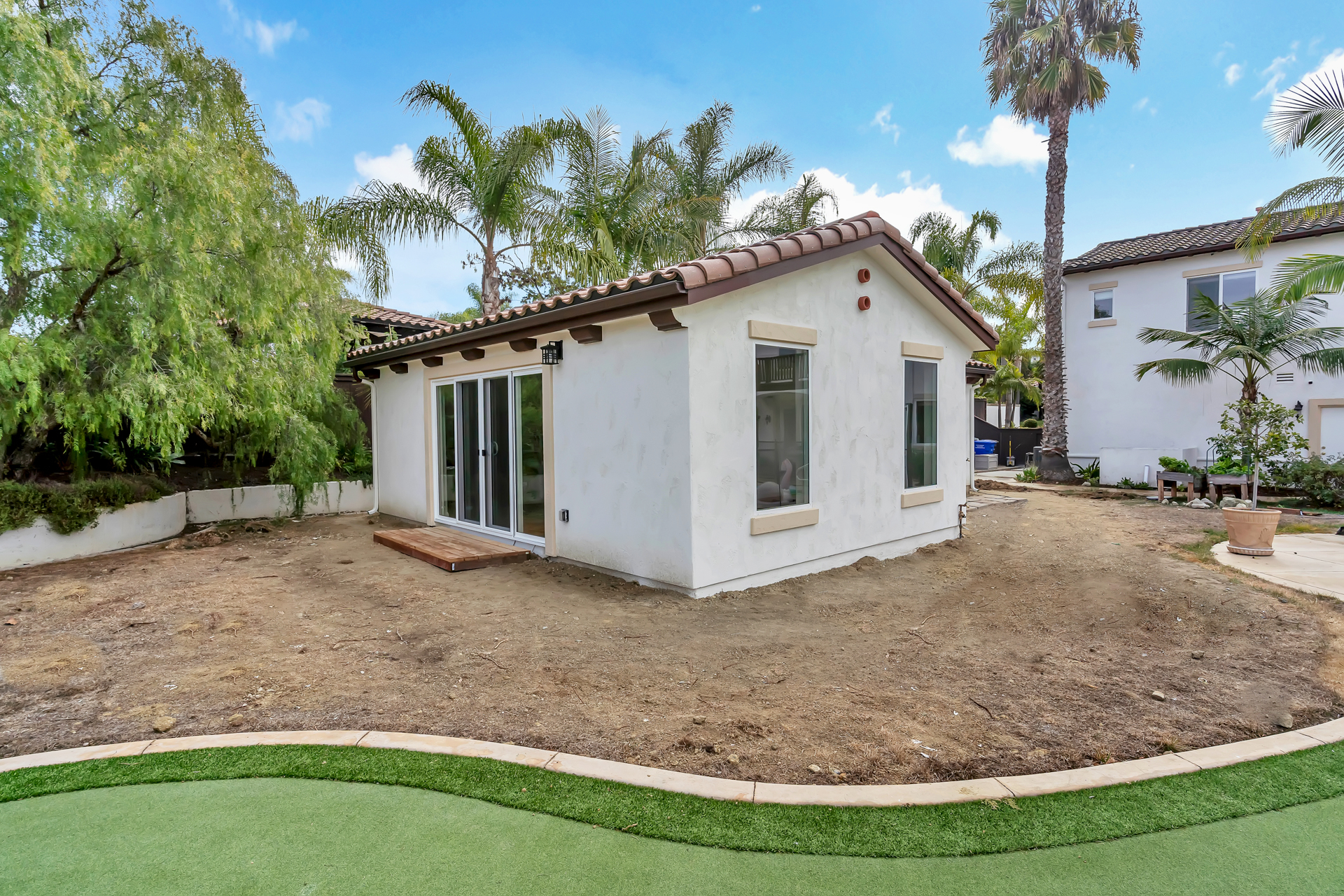
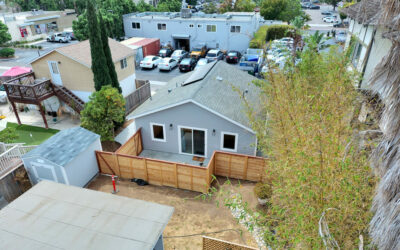
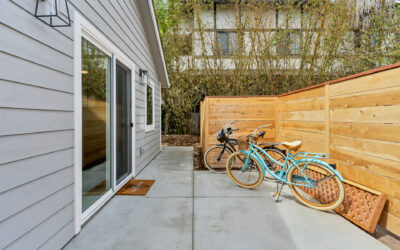
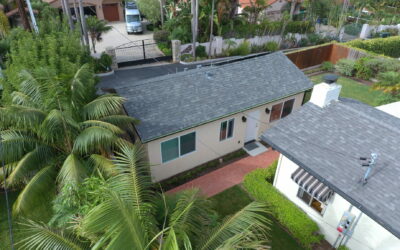
Certifications and training are crucial because they ensure that the builder has the necessary knowledge and skills to handle the job safely and efficiently. It’s always a good practice to check the builder’s general contracting license number to verify its authenticity. This can be easily done by visiting their website or business profile, as mentioned in the article.